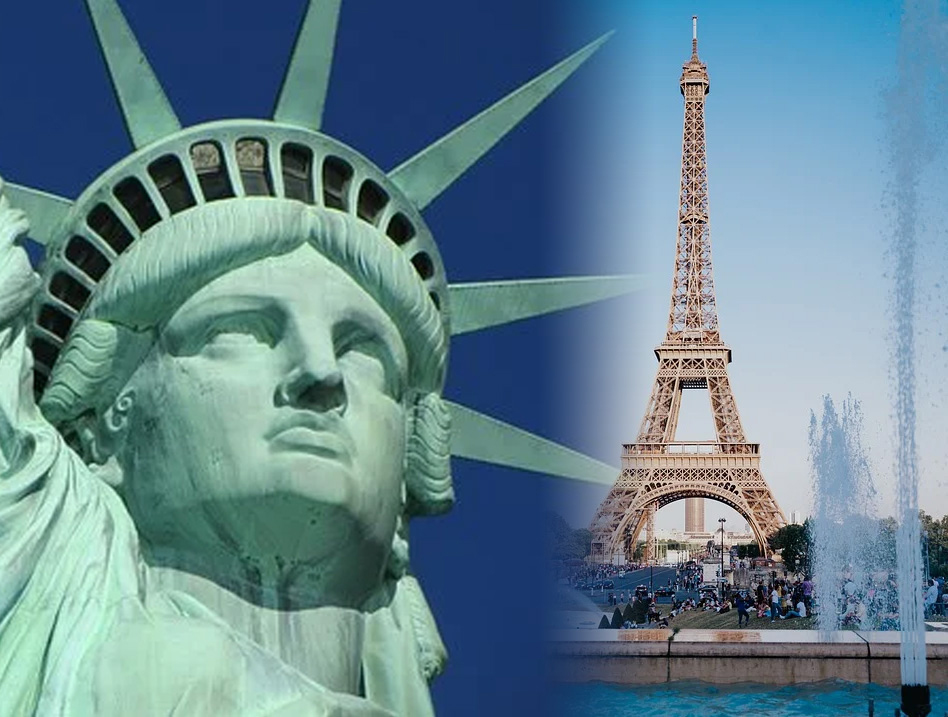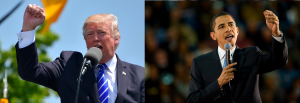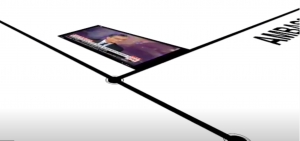Outlines :
His experience of the years spent under the presidency of Barack Obama, then that of Donald Trump,
29 August 2021 : Gérard Araud retired as French ambassador to the United States on April 19, 2019. Before his departure, he shares with France-Amérique magazine his experience of the years spent under the presidency of Barack Obama, then that of Donald Trump, two diametrically different personalities!
Barack Obama, a mandate without scandal, working his files, a charismatic personality, an intellectual who could be unapproachable.
Donald Trump, fiery, unpredictable, not reading any note, not studying any file, making decisions without consulting his collaborators…
But isn’t the role of an ambassador to adapt …..
The ambassador of France in the United States since 2014, Gérard Araud retired on April 19. Before stepping down, he shared his experience with France-Amérique. The full version of his “diplomatic testament” is to be published in the May issue of our magazine.
After being appointed ambassador of France to the United States, I presented my credentials to Barack H. Obama on September 18, 2014. I stepped down from my position on April 19, 2019, after two years of Trump’s presidency. Shifting from Barack Obama to Donald Trump implied a major challenge given their polarized personalities.
First, we have Barack Obama, an introverted intellectual with a flawless family life and an administration free from scandal. A persistently rational intellectual, to the point that some found him condescending. As an exemplary bureaucrat, he would never shy away from a case or file regardless of its length and complexity. He also never made decisions without first holding often interminable meetings. But the charismatic Barack Obama was also a solitary man, much to the displeasure of the Democrats who complained of his inaccessibility.
Then there is Donald Trump, the heir to a New York real estate empire whose vulgar, ashy style he has also inherited. A longtime fixture of the New York tabloids, he has filled newspapers with his stories of divorces, bankruptcies, and lawsuits. Both impulsive and extroverted, he reads neither notes nor files and makes most of his decisions without talking to the main stakeholders. He ignores and dismisses paperwork, and spends his days on his phone or in front of the television. In fact, he obtains most of his statistics and arguments from Fox News, and uses them without ever checking their accuracy.
That being said, whether it is Obama or Trump in the White House, being an ambassador in Washington provides the same lesson in modesty regardless of the country you represent.
Whether the American administration of the day is dysfunctional or not, it is forced to arbitrate between civil society and the military, intelligence services (of which there are 17 in the United States), and executive and legislative powers, while remaining convinced of America’s superiority. As a result, it pays little heed to the interests of its allies, who are often left with little choice but acceptance.
In this regard, neither Obama nor Trump are exceptions to the rule, in that they both believe in reducing American involvement in
foreign countries — even if they are allies. They believe each nation should defend its own interests, and that the U.S.A. is not there to play world police. While the Obama administration operated more smoothly and was more predictable in its decisions, it still initiated America’s withdrawal from the world stage. Trump has merely continued this trend. The United States farmed out the management of the Ukrainian crisis to Germany and France. It has always done the bare minimum in Syria, and only at the last minute when pressured by its Arab and European partners.
When Bashar al-Assad’s regime used chemical weapons in August 2013, Obama announced a forceful response to this violation of international law. He then revoked the decision soon after without consulting or informing the British or the French, whose support he had both requested and obtained. Trump follows this same logic in a more abrupt way. In December 2018, he announced the withdrawal of U.S. troops from Northeastern Syria, also without taking into account the interests or opinions of European allies in the field.
Style is of course important in politics, and Obama’s and Trump’s are incomparable. The latter’s modus operandi displays a visceral hostility towards multilateralism. This has manifested itself in the disengagement from treaties, such as the Paris Agreement on climate change and the Iran nuclear deal, and from organizations such as the U.N. and the European Union. At least his predecessor accepted a multilateral approach as long as it served American interests.
However, the underlying reality remains the same. The role of the United States in the world is undergoing a major redefinition. Even if the country only partially withdraws from the world stage and adopts a unilateral approach, this will inevitably impact the international balance of power and therefore the security of France. Withdrawal and nationalism have been my main concerns over the last five years, and I have tried to predict the consequences they will have on France.
With regard to Obama, the normal functioning of his administration allowed for a constant, trustful dialogue between allies. The officials I worked with were informed and competent. There were disagreements, but each party tried to resolve them in good faith while ensuring any crises remained private. Today, ambassadors are confronted with many empty of ces in the U.S. administration, even two years after the president’s inauguration. In any case, we now learn of
Trump’s decisions via Twitter, often at the same time as those who are supposed to implement them and who are therefore incapable of warning us.
As an ambassador, I was therefore required to adapt my working methods from one president to another, from a hardworking bureaucrat to an erratic sovereign. I have spent as much time with the president’s family as with the administration’s officials. I have realized predicting the decision of a single person is difficult, if not impossible. I have called on the president of the French Republic to obtain answers while all my other contacts were left in the dark. I have often felt I was a ambassador in a monarchy instead of a republic, given how a single person now decides without discussion or advice. It is also true that the excellent relations between our two countries, reflected by the relationship between the two presidents, has made my job easier.
The United States is far more than Washington. Regardless of the president, throughout my visits across this vast country, I have always observed a kindness and openness shown to foreigners, and the same friendship and interest with regard to France.
And these are the most cherished memories I will be taking with me.
By Gérard Araud
April 24, 2019
Would you like to organise a conference on international current affairs or book a lecture with Gérard Araud?
Contact : Jean-Michel Dardour on + 33 (0) 6 88 09 09 79 or fill in the contact form here-below.




